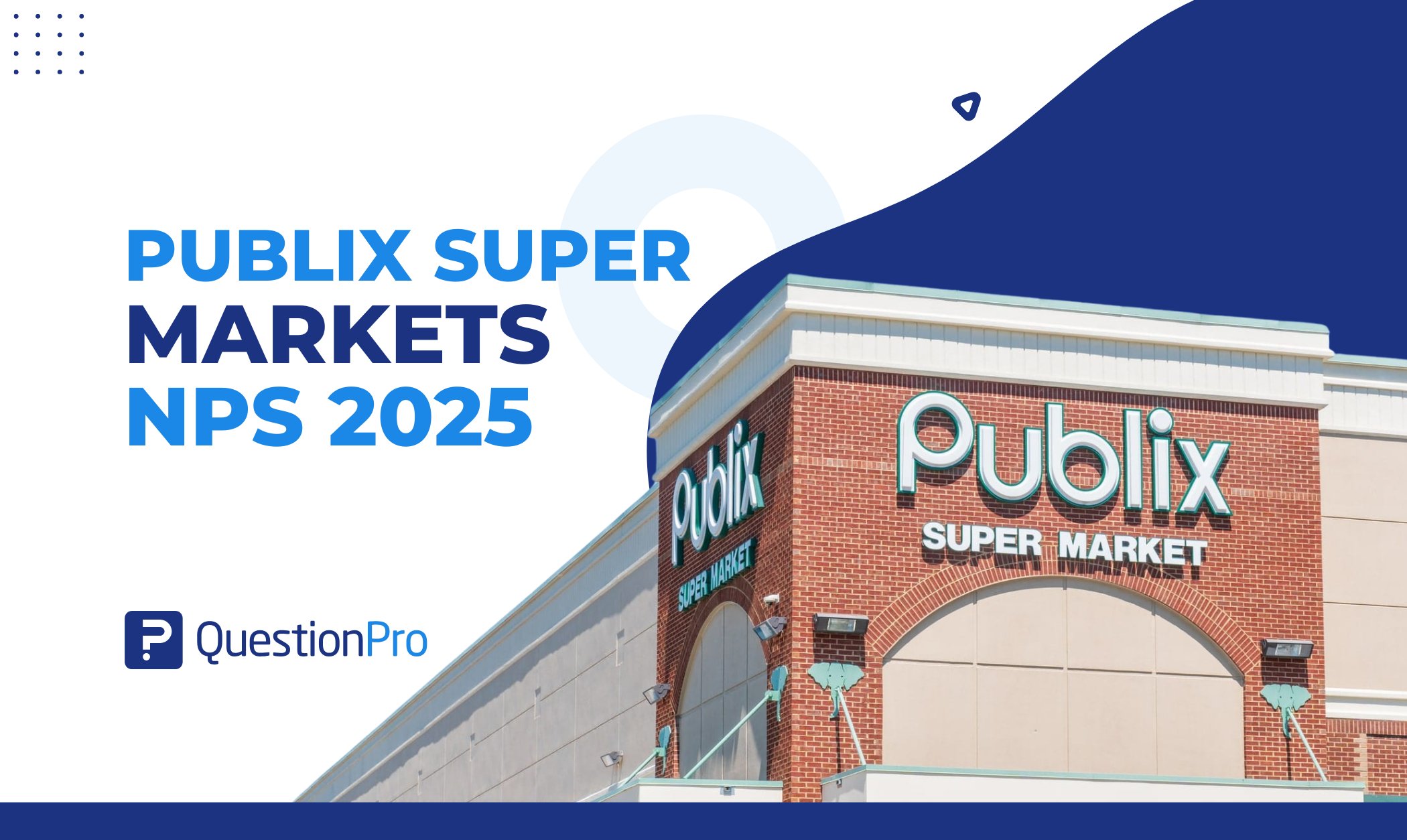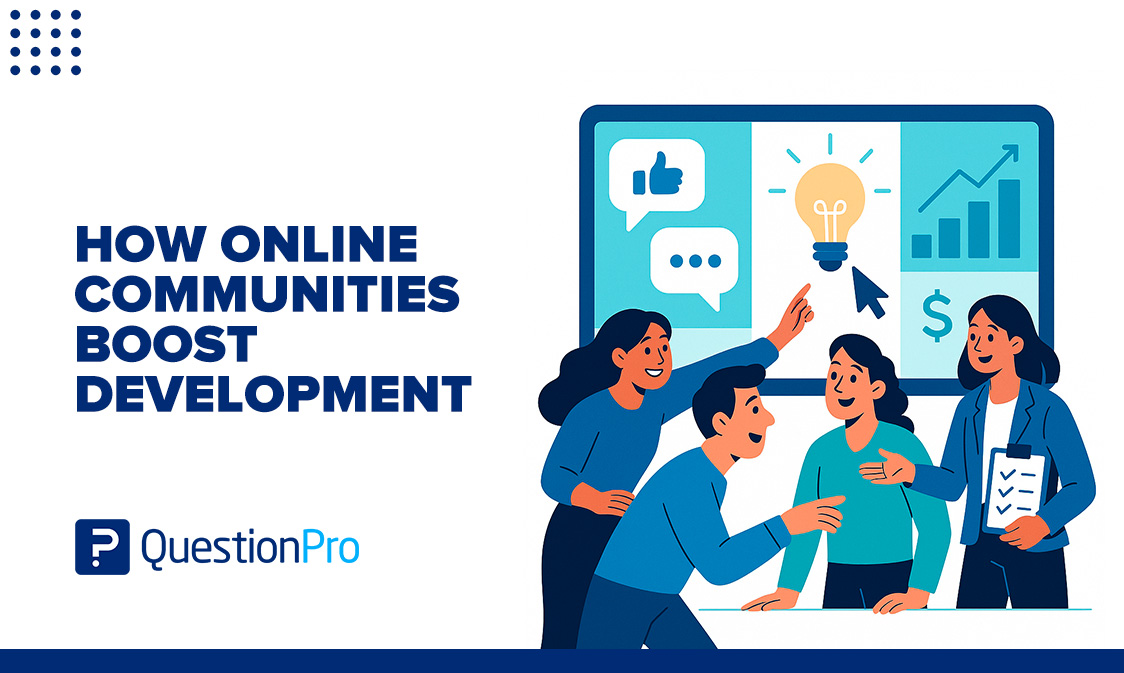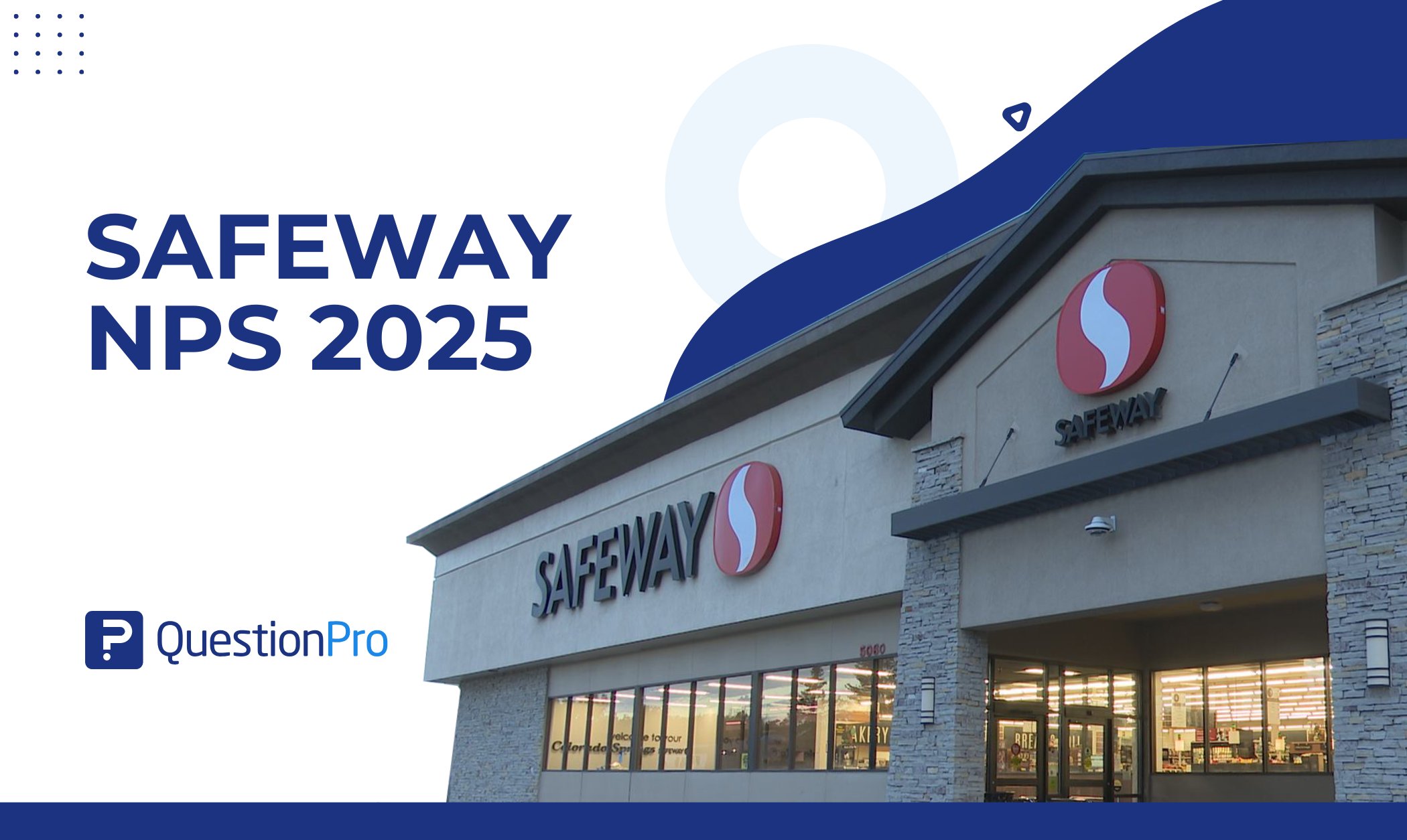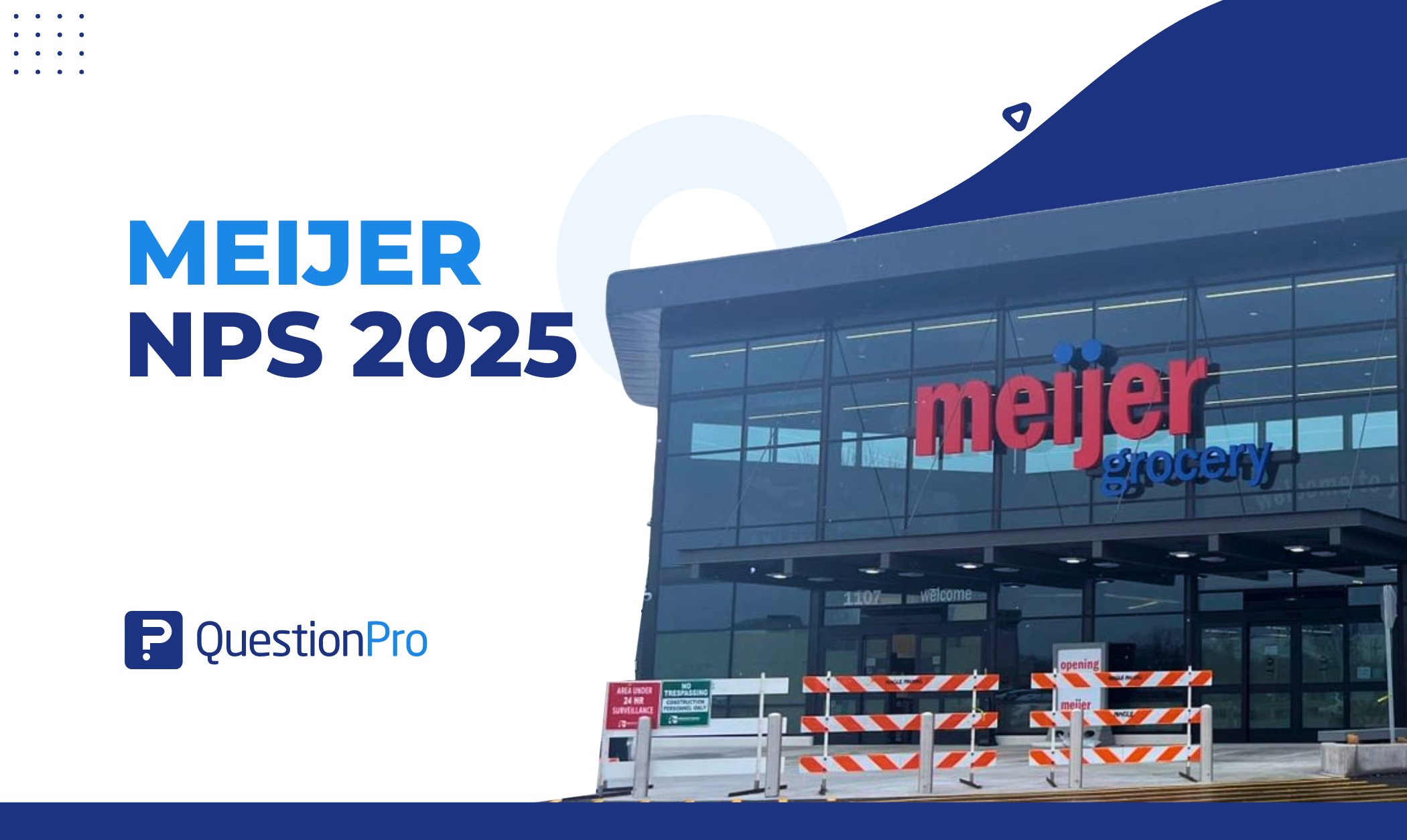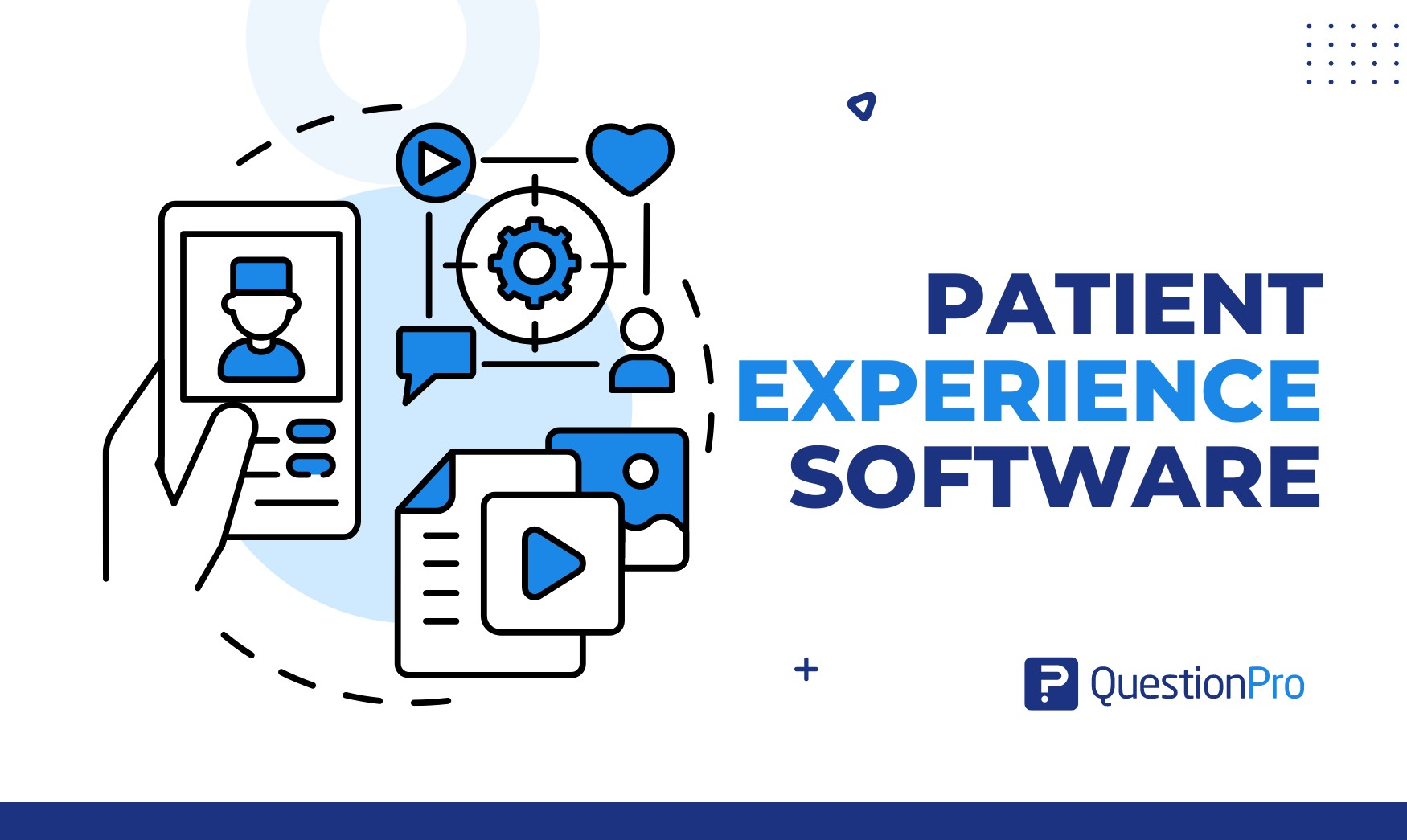
Ever wonder how modern healthcare is changing to make your patient experience smoother, more convenient, and just overall better? Well, it’s all thanks to tech tools called patient experience software.
These software solutions act as personal assistants in healthcare, taking care of booking appointments, getting follow-up care, and everything in between.
Patient feedback software gathers feedback to measure patient satisfaction and identify areas for improvement. It helps healthcare providers understand what patients need and how they feel about their care so they can make adjustments that boost the overall experience. That’s the power of good Patient Experience Software, and today, we’re going to take a closer look at the top 20 solutions that are making waves in modern healthcare.
So, get ready to discover how these amazing tools are shaping the way you experience healthcare, all in a simple and easy-to-understand way! Let’s explore this in detail!
What is Patient Experience Software?
Patient Experience Software is a tool designed to improve the customer (patient) experience by enhancing every interaction a patient has with healthcare providers. It focuses on making healthcare more convenient and personalized, from booking appointments to receiving care and follow-up communications.
This software typically includes features such as:
- easy online scheduling
- access to medical records
- patient feedback systems and
- communication tools
All are aimed at making the patient’s journey smoother and more engaging. It helps healthcare providers understand and respond to patient needs, ensuring a better overall experience.
By improving communication and simplifying processes, Patient Experience Software leads to higher patient satisfaction, better care outcomes, and stronger relationships between patients and healthcare providers.
The Top 20 Patient Experience Software in 2025
Patient experience stands as a cornerstone of quality care delivery. With advancements in technology, healthcare organizations are leveraging innovative software solutions to enhance employee engagement, satisfaction, and outcomes. As we exploring into 2025, let’s explore the top 20 patient experience software platforms that are revolutionizing healthcare delivery:
1. QuestionPro
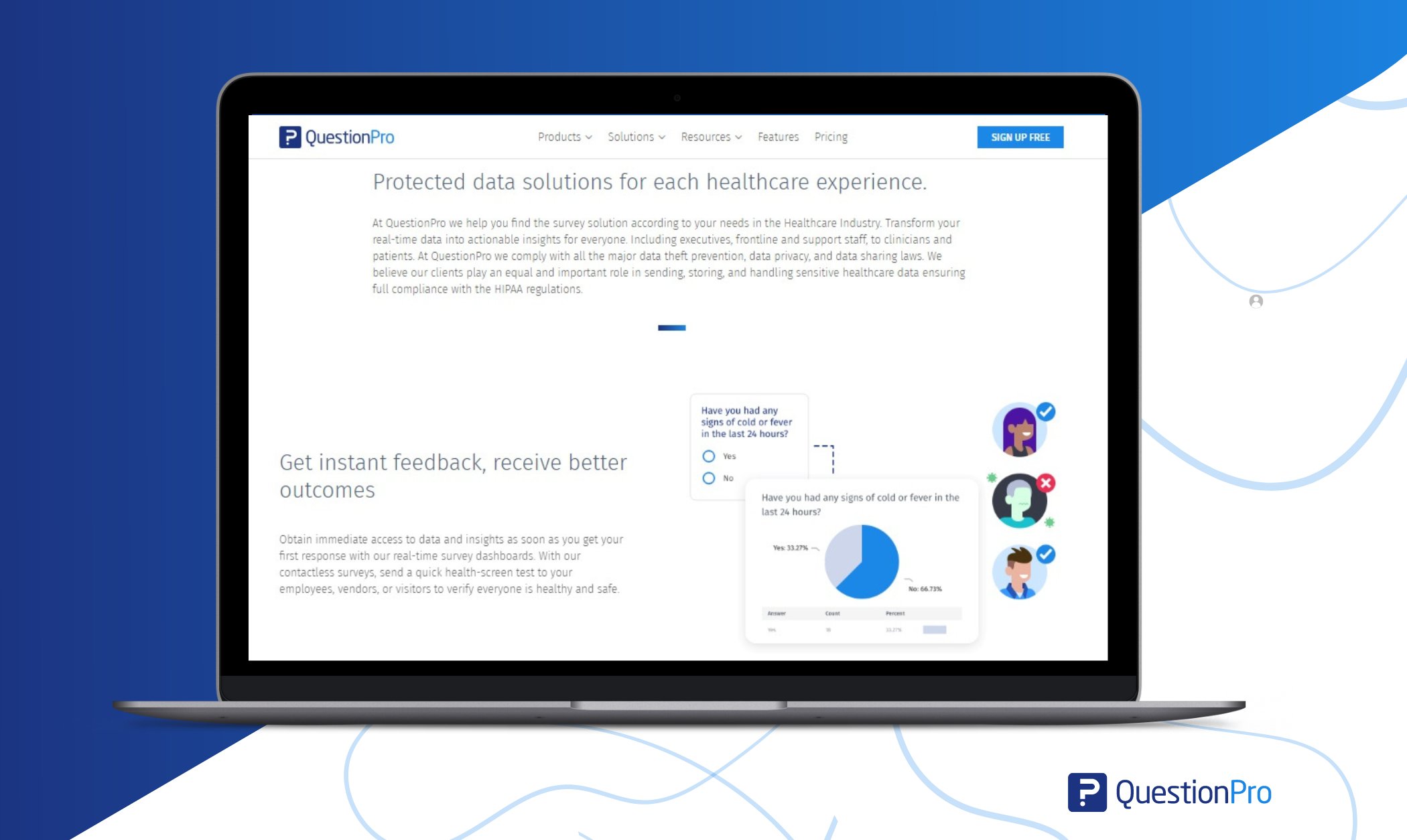
QuestionPro is an excellent survey platform that enables healthcare organizations to gather feedback from patients and measure their satisfaction levels. It offers robust survey creation tools, customizable templates, and real-time analytics to help healthcare providers understand patient sentiments and improve their services.
Features
- HIPAA-compliant survey tools
- Pre-built patient satisfaction survey templates
- AI-driven sentiment analysis
- Customizable patient surveys
- Multichannel distribution (email, SMS, QR codes)
- Dashboards for easy data visualization
- Benchmarking against industry standards
Cons
- Limited integration options with other healthcare systems.
Pricing
- QuestionPro offers a range of pricing plans starting from $99 per user per month, with custom enterprise plans available for larger organizations.
2. NexHealth
NexHealth is a patient engagement platform that offers features such as online appointment scheduling, appointment reminders, telemedicine capabilities, and secure messaging. It aims to streamline the patient experience by providing convenient digital tools for scheduling appointments and communicating with care team members.
Features
- Automated appointment reminders
- Two-way secure messaging
- Digital patient intake forms
- Patient satisfaction surveys
- Integration with EHR and practice management systems
- Patient portal for managing patient health records
- HIPAA-compliant communications
- Multi-location management
- Customizable patient communication workflows
Cons
- Some users report occasional technical issues with the platform’s telemedicine features.
- Limited customization options for appointment reminder templates.
Pricing
- NexHealth offers customized pricing based on the specific needs and size of each healthcare practice.
3. Mogo
Mogo is a patient feedback software and patient experience platform that automates and optimizes various aspects of the patient journey, including appointment scheduling, patient intake, payments, and feedback collection. Streamlining administrative processes and enhancing communication aims to improve operational efficiency and patient satisfaction.
Features
- Automated patient reminders
- Digital patient intake forms
- Patient feedback collection
- EHR integration with dental imaging tools
- Patient portal for record access
- Billing and payment processing
- HIPAA-compliant data management
Cons
- Integration with existing health systems may require additional customization.
- Limited customization options for patient intake forms.
Pricing
- Mogo offers tiered pricing plans starting from $250 per month.
4. Legwork
Legwork is a patient engagement software and marketing platform that helps healthcare practices attract new patients, retain existing ones, and enhance the overall patient experience. It offers features such as online scheduling, automated patient communications, online reputation management, and patient surveys.
Features
- Patient satisfaction surveys
- Marketing automation for patient retention
- Patient portal for secure access to records
- HIPAA-compliant communication
Cons
- Pricing may be higher compared to other solutions on the market.
- Limited support for multilingual patient communications.
Pricing
- Legwork offers customized pricing based on each healthcare practice’s specific needs and size.
5. Tab32
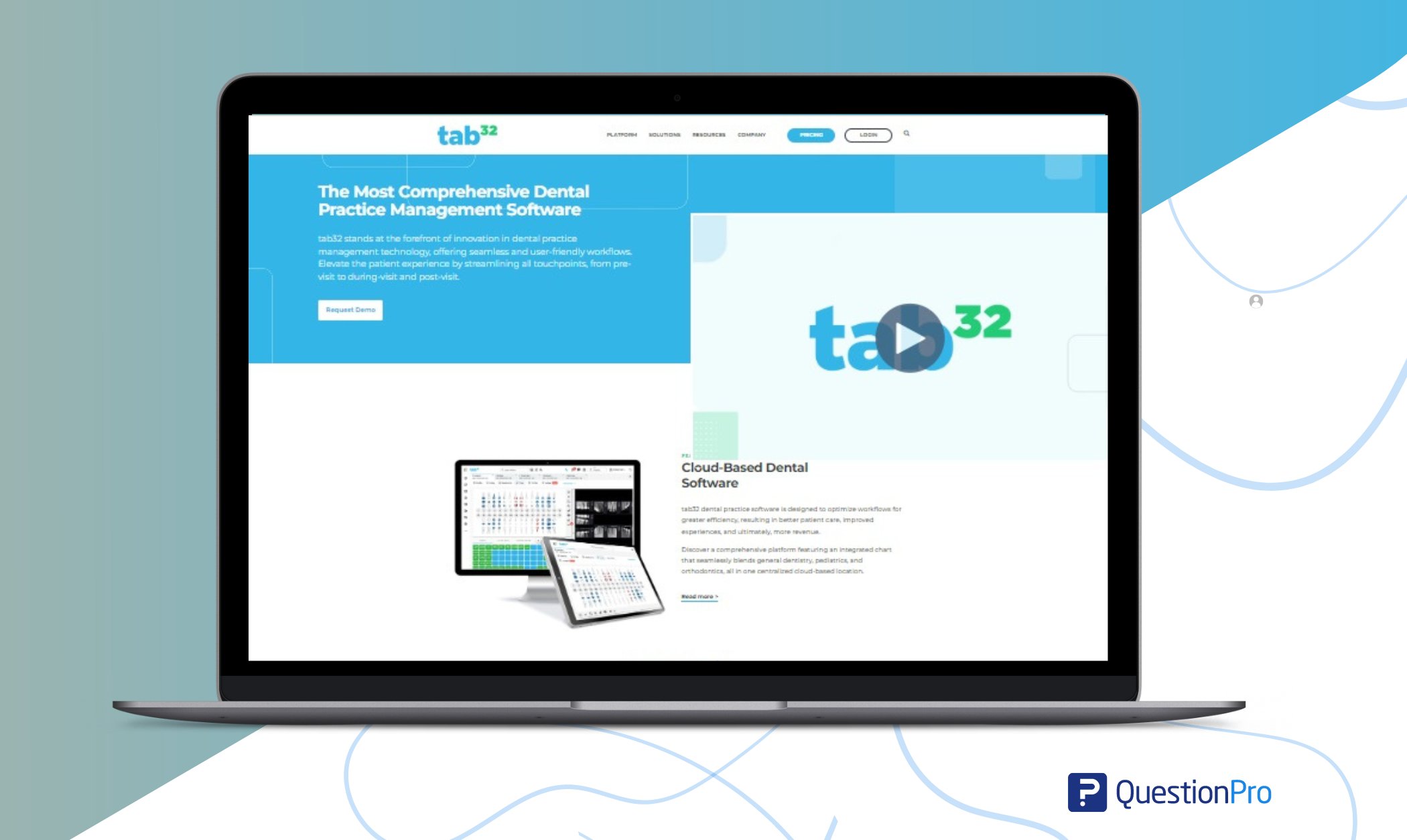
Tab32 is a cloud-based dental practice management platform that includes patient engagement features such as online scheduling, appointment reminders, patient communications, and reputation management. It is a patient communication platform that aims to streamline administrative tasks and improve patient communication to enhance the overall patient experience.
Features
- Secure, HIPAA-compliant messaging
- Cloud-based EHR and dental imaging
- Patient portal for accessing records and payments
- Automated billing and payments
Cons
- Limited integration options with third-party applications and services.
Pricing
- Tab32 offers customized pricing based on each healthcare organization’s specific needs and size.
6. Phreesia
Phreesia is a patient intake platform that automates the patient registration process, verifies insurance eligibility, collects patient payments, and gathers patient-reported outcomes. It aims to streamline administrative tasks and improve patient experience data accuracy while enhancing the patient experience.
Features
- Self-service patient registration kiosks
- Real-time insurance eligibility verification
- Digital consent forms with e-signature capture
- Behavioral health screening and assessments
- Patient-reported outcomes (PROs) collection
- Multilingual support for forms and communication
- Telemedicine visit scheduling and management
Cons
- Some users report challenges with integrating Phreesia with existing practice management systems.
- Limited customization options for registration forms and workflows.
Pricing
- Phreesia offers customized pricing based on each healthcare organization’s specific needs and size.
7. MyChart
MyChart is a patient portal provided by Epic Systems Corporation, one of the leading electronic health record (EHR) vendors. It allows patients to access their health records, schedule appointments, request prescription refills, communicate with their healthcare providers, and pay bills online.
Features
- Access to personal medical records and test results
- COVID-19 vaccination tracking and updates
- Push notifications and alerts for upcoming appointments and test results
- Bill payment and financial assistance options
Cons
- Limited availability for healthcare organizations that do not use Epic’s EHR system.
Pricing
- MyChart is typically offered as part of Epic’s EHR system, with pricing based on the size and complexity of each healthcare organization’s implementation.
8. Pabau
Pabau is a patient management platform designed specifically for healthcare practices, including medical, dental, and aesthetic clinics. It offers features such as appointment scheduling, patient communications, treatment planning, invoicing, and reporting to streamline operations and enhance the patient experience.
Features
- Patient CRM to manage profiles and interactions
- Health questionnaire automation for pre-visit assessments
- Secure two-way messaging and communication logs
- Integrated treatment plans and progress tracking
- Loyalty programs and referral management
- Payment processing and invoicing tools
Cons
- Limited integration options with third-party applications and services.
Pricing
- Pabau offers subscription-based pricing.
9. athenaOne
athenaOne is an excellent suite of healthcare solutions offered by Athenahealth, including electronic health records (EHR), practice management, revenue cycle management (RCM), and patient engagement tools. It aims to streamline workflows, improve clinical and financial outcomes, and enhance the patient experience across the continuum of care.
Features
- Patient portal for accessing health information and lab results
- Secure messaging between patients and healthcare providers
- Telehealth services for virtual visits
Cons
- Limited availability for healthcare organizations that do not use Athenahealth’s EHR system.
Pricing
- athenaOne offers customized pricing based on each healthcare organization’s specific needs and size, with monthly subscription fees starting from $400 per provider.
10. SimplePractice
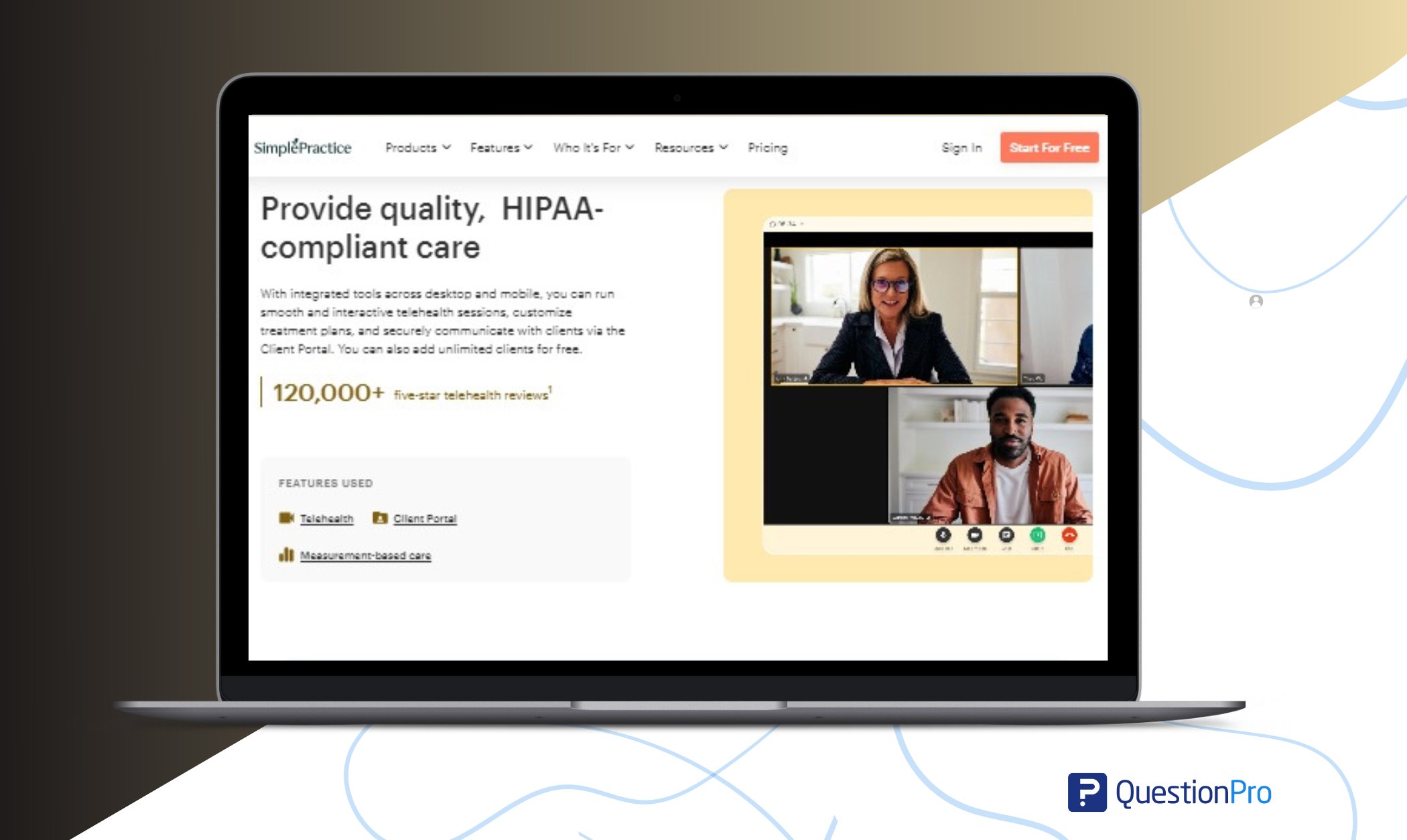
SimplePractice is a practice management platform designed for mental health practitioners, including therapists, counselors, and psychologists. It offers features such as appointment scheduling, electronic health records (EHR), billing, telehealth, and client communication to streamline operations and improve patient care.
Features
- Secure client messaging and communication
- Client progress tracking and notes
- Automated appointment reminders via SMS and email
- Client portal for accessing documents and health records
- Customizable forms and templates
Cons
- Limited availability for healthcare practitioners outside the mental health field.
Pricing
- SimplePractice offers subscription-based pricing.
11. Press Ganey
Press Ganey is a leader in patient experience measurement, helping health care organizations understand and improve the quality of care through comprehensive surveys and analytics. Their tools are designed to capture patient feedback effectively and provide deeper insights to enhance patient satisfaction.
Features:
- Extensive library of patient satisfaction surveys.
- Benchmarking against national standards.
- Real-time reporting dashboards.
- Analytics for tracking performance trends over time.
Cons:
- Some users report that navigating the platform can be complex initially.
Pricing:
- Customized based on services utilized and the specific needs of the healthcare organization.
12. NRC Health
NRC Health specializes in gathering and analyzing patient feedback to help healthcare organizations improve the patient experience. Their platform provides real-time insights that enable providers to make informed decisions based on patient sentiments.
Features:
- Real-time patient feedback collection.
- Analytics and reporting tools for patient insights.
- Actionable insights for quality improvement.
- Patient journey mapping to identify improvement areas.
Cons:
- Some users find the initial setup and customization complex.
- It may require ongoing training to maximize platform usage.
Pricing:
- Pricing is available upon request.
13. Qualtrics Healthcare Experience
Qualtrics Healthcare Experience helps healthcare organizations capture and analyze patient feedback. It provides an excellent set of tools for understanding patient needs and improving overall care quality through real-time insights and predictive analytics.
Features:
- Predictive analytics.
- Customizable dashboards.
- Integration with existing EHR systems and healthcare workflows.
- Action planning tools.
- Multi-channel feedback collection (online, mobile, in-person)
Cons:
- Higher pricing tier compared to some competitors.
- It may require significant training for optimal use and understanding of features.
Pricing:
- Qualtrics offers a free account for patient experience.
14. Medallia Healthcare Experience Cloud
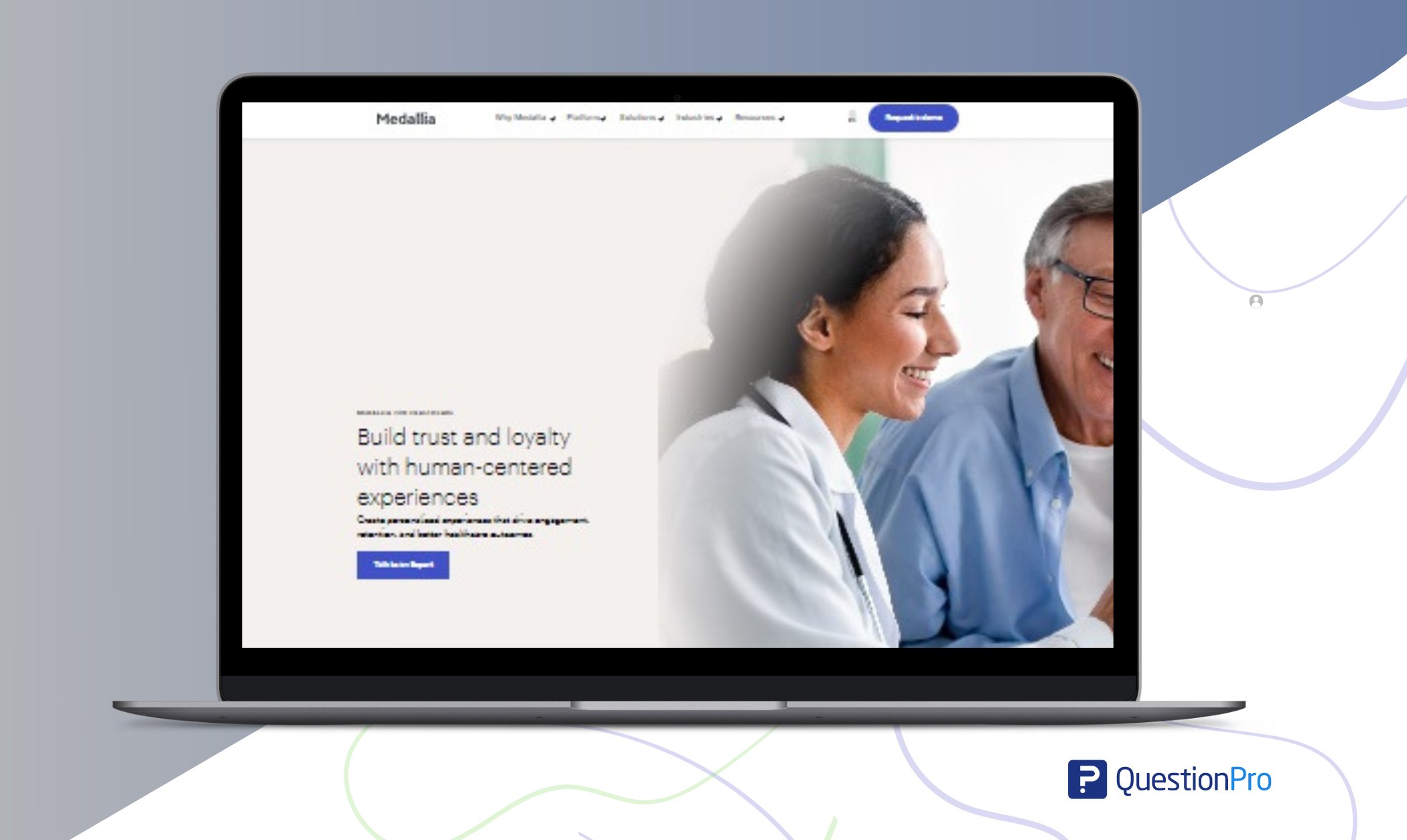
Medallia Healthcare Experience Cloud captures and analyzes patient feedback across various touchpoints. It aims to improve patient engagement and satisfaction by providing healthcare organizations with actionable insights derived from real-time data.
Features:
- Omni-channel feedback collection (surveys, SMS, web, etc.)
- Customizable reporting dashboards.
- Patient journey mapping.
- Automated alerts and notifications for immediate action on feedback.
- Employee engagement tools.
Cons:
- Requires thorough onboarding and training for effective implementation.
Pricing:
- Customized based on organizational needs and the features selected.
16. HealthStream PX Survey Solutions
HealthStream PX Survey Solutions is designed to measure and enhance patient satisfaction through an excellent set of survey tools. It enables healthcare organizations to gather actionable insights from patient feedback. It also helps them improve care quality and overall experience.
Features:
- Benchmarking capabilities.
- Integration with EHR systems for streamlined data collection.
- Support for various survey methodologies (e.g., CAHPS, HCAHPS)
- Mobile-friendly surveys for improved response rates.
Cons:
- Some users may find the survey design options somewhat limited.
Pricing:
- Pricing is available upon request.
17. Well Health
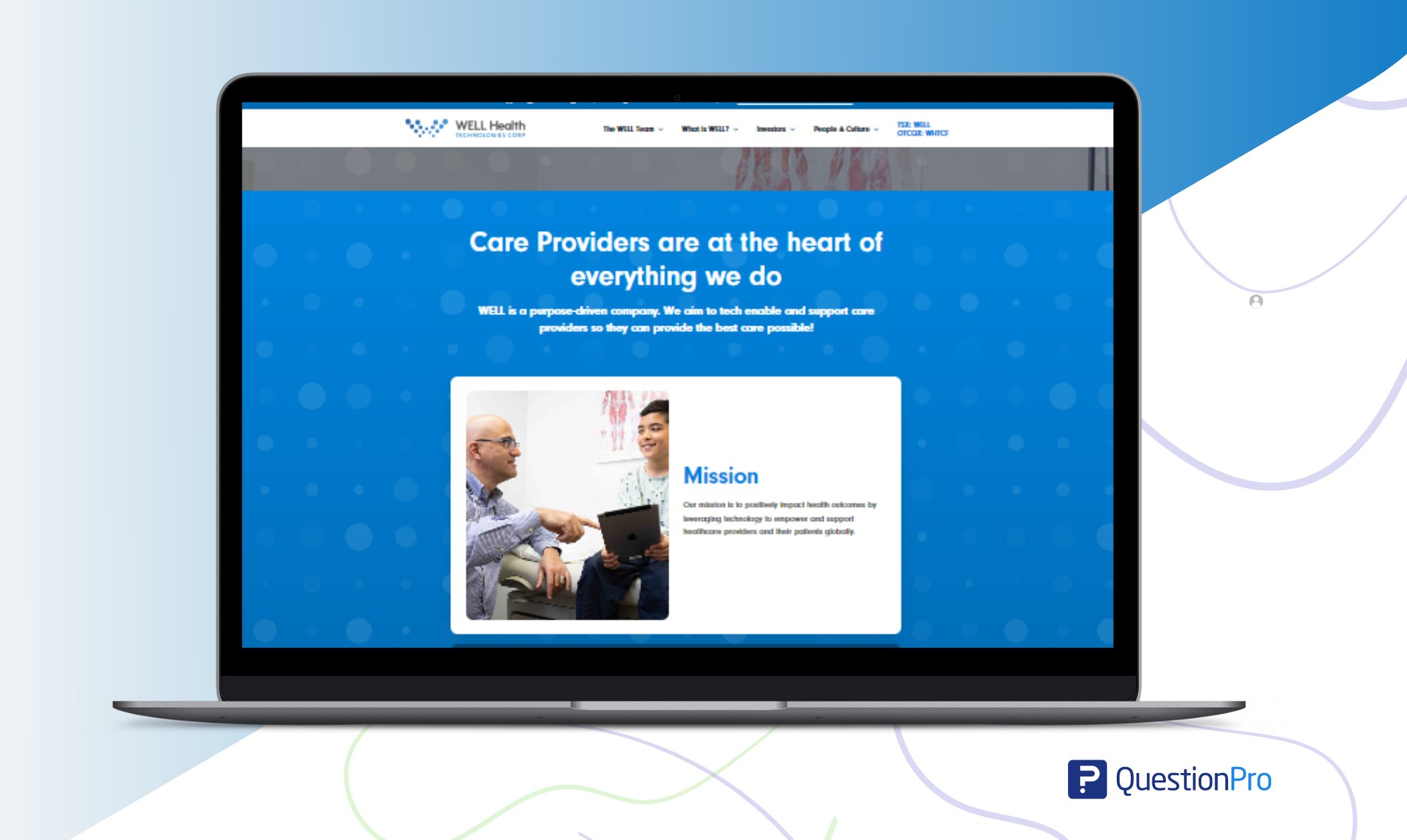
Well Health focuses on enhancing communication between patients and healthcare providers. It enhances appointment scheduling, reminders, and feedback collection, aiming to improve the overall patient experience.
Features:
- Automated appointment reminders.
- Patient messaging platform.
- Feedback collection tools.
- Analytics dashboard.
- Multilingual support.
Cons:
- Some users report challenges with the integration of existing systems.
Pricing:
- Contact Well Health for their pricing.
18. CipherHealth
CipherHealth focuses on improving patient communication and care management. It offers tools for collecting feedback, managing follow-ups, and enhancing patient relationships, aiming to get better health outcomes and satisfaction.
Features:
- Follow-up calls and surveys.
- Patient engagement and education tools.
- Customizable care pathways to guide patient interactions.
Cons:
- Some users may find the reporting features less comprehensive than desired.
Pricing:
- Customized based on the specific services utilized and the size of the healthcare organization.
19. Luma Health
Luma Health focuses on optimizing the patient journey from appointment scheduling to follow-up care. It provides tools that enhance communication between patients and healthcare providers, aiming to improve access to care and patient satisfaction.
Features:
- Online appointment scheduling and automated reminders.
- Automated follow-up messages for post-visit care.
Cons:
- Initial setup may require technical support for integration.
Pricing:
- Customized pricing based on the needs of the healthcare organization.
20. Solutionreach
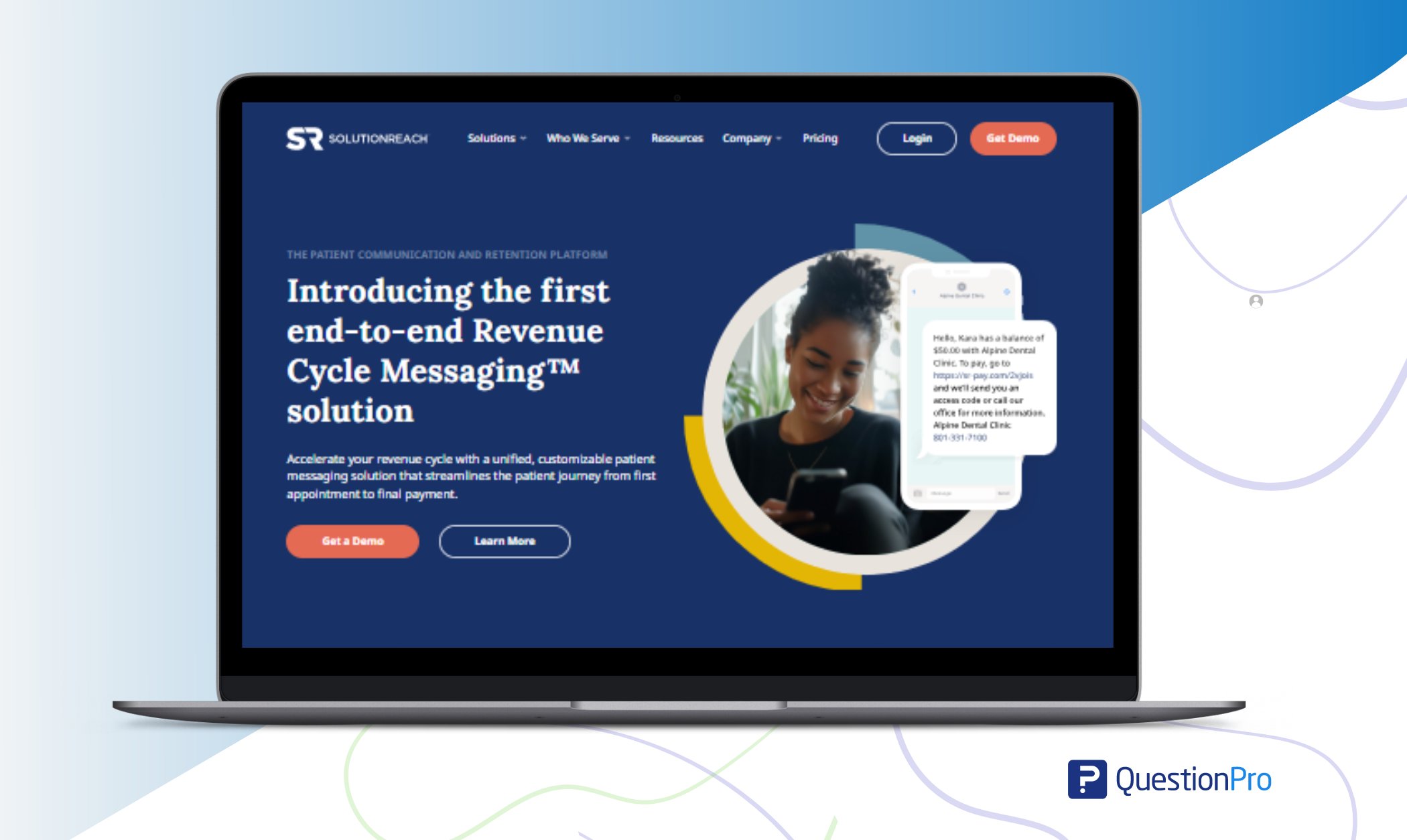
Solutionreach is designed to enhance communication and improve the patient experience throughout the healthcare journey. It offers tools for appointment reminders, patient feedback, and ongoing engagement aimed at building stronger relationships between providers and patients.
Features:
- Secure messaging for two-way communication.
- Reporting and analytics tools to track patient engagement metrics.
- Educational content delivery to keep patients informed about their care.
Cons:
- Some users report that the interface can feel outdated compared to competitors.
- Pricing may be on the higher side for smaller practices.
Pricing:
- Pricing is available upon request.
Why Is Patient Experience Software Important?
Creating a great patient experience is essential for success. It goes beyond just meeting business goals; it’s about understanding and fulfilling the emotional and physical needs of our patients. Here are some key reasons why it’s important to regularly check in on your patients’ satisfaction
Empowering Patients
Patient Experience Software empowers patients by providing them with tools and resources to actively participate in their healthcare journey. From scheduling appointments to accessing their health records and communicating with healthcare providers, these software solutions put patients in control of their own care.
Improving Communication
Effective communication is fundamental to quality healthcare delivery. Patient Experience Software facilitates seamless communication between patients and healthcare providers through secure messaging platforms, telemedicine features, and appointment reminders.
Enhanced communication strengthens the patient-provider relationship and ensures that patients receive timely and relevant information about their care, leading to better treatment adherence and outcomes.
Enhancing Efficiency
Healthcare organizations are constantly seeking ways to optimize their operations and improve efficiency. Implementing Patient Experience Software streamlines administrative tasks such as appointment scheduling, registration, and data entry, freeing up valuable time for healthcare providers to focus on delivering quality care.
These software solutions contribute to smoother workflows and enhanced productivity by automating routine processes and reducing administrative burdens.
Driving Continuous Improvement
Patient Experience Software collects valuable patient data, satisfaction levels, and healthcare utilization patterns. By analyzing this data, healthcare organizations can gain insights into areas for improvement and identify opportunities to enhance the patient experience.
Whether addressing patient concerns, optimizing service delivery, or refining care protocols, data-driven decision-making enables healthcare organizations to continuously evolve and adapt to meet their patients’ needs.
Staying Competitive
Providing exceptional patient experiences is key to gaining a competitive edge. Implementing Patient Experience Software allows healthcare organizations to differentiate themselves by offering personalized, patient-centered care that meets their patients’ unique needs and preferences.
By delivering exceptional experiences that exceed expectations, healthcare organizations can attract and retain patients, thereby enhancing their reputation and market position.
How to Choose the Right Patient Experience Software for Your Facility?
Choosing the right patient experience solutions is a critical decision that can significantly impact the quality of care you provide and your patient’s satisfaction. Here are some key steps to help you navigate the selection process:
- Assess Your Needs: Begin by conducting a comprehensive assessment of your facility’s specific needs and priorities. Consider factors such as your practice’s size and specialty, patient population, existing workflows, and areas for improvement.
- Define Your Requirements: List the specific requirements and functionalities you expect from the Patient Experience Software.
- Research Available Options: Conduct thorough research to explore the different Patient Experience Software solutions available in the market. Consider factors such as vendor reputation, customer reviews, industry recognition, and compatibility with your existing systems.
- Evaluate Features and Functionality: Make a list of essential features and functionalities that are critical for addressing your facility’s needs.
- Consider User Experience: Assess the user interface and overall usability of each Patient Experience Software solution.
- Assess Security and Compliance: Prioritize Patient Experience Software solutions that adhere to industry standards for data security and privacy, such as HIPAA compliance.
- Evaluate Integration Capabilities: Determine whether the Patient Experience Software integrates seamlessly with your existing systems, such as electronic health records (EHR), practice management software, billing systems, and telehealth platforms.
- Consider Costs and ROI: Finally, consider the costs associated with implementing and maintaining the Patient Experience Software, including upfront fees, subscription costs, implementation fees, and ongoing support costs.
- Seek Feedback and References: Before deciding, seek feedback from key stakeholders within your facility, including healthcare providers, administrative staff, and patients. Additionally, request references from the vendor and speak with existing customers to gain actionable insights into their experiences.
Why QuestionPro is Your Right Choice of Patient Experience Software?
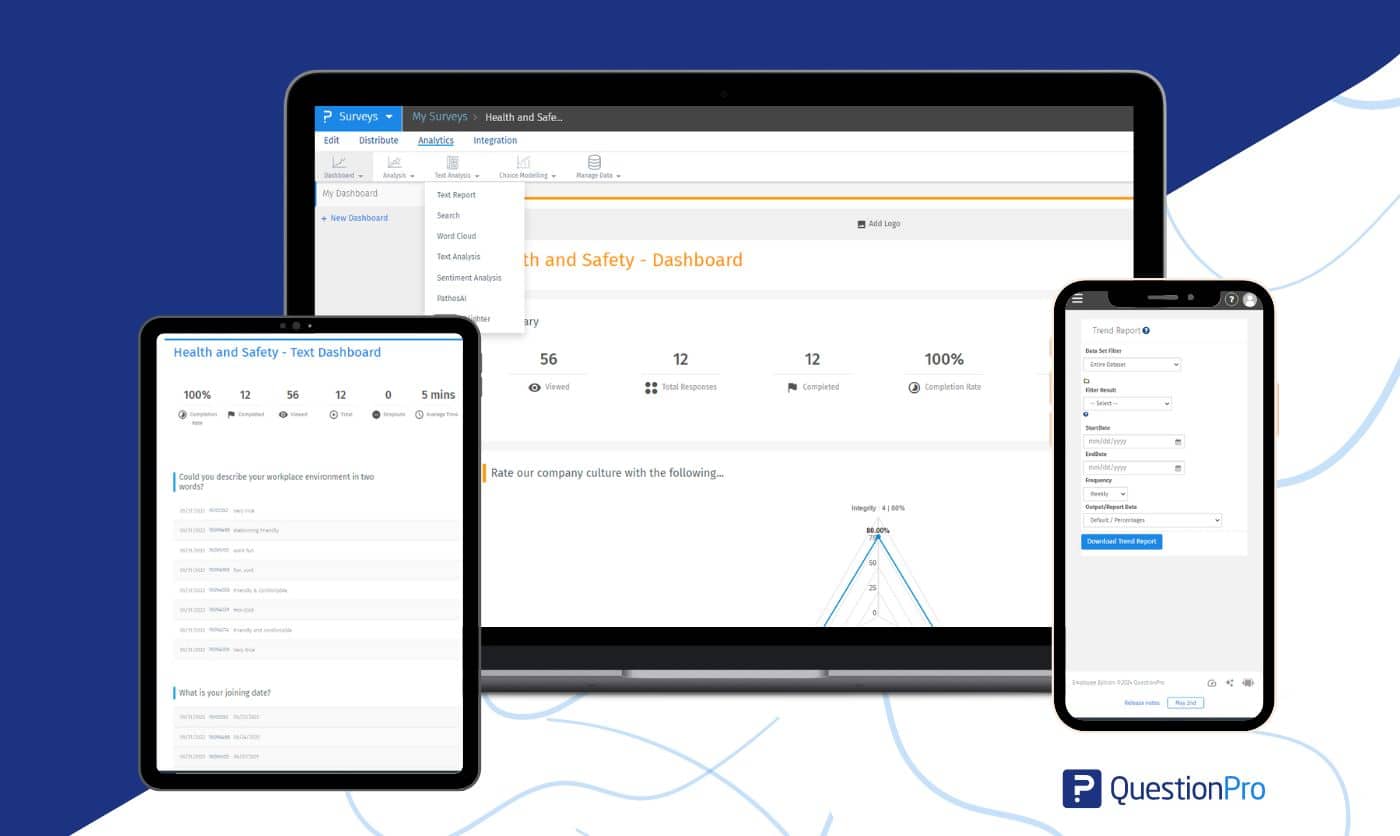
QuestionPro stands out as a leading choice for patient experience software due to its robust features, user-friendly interface, and commitment to enhancing the patient journey. Here are several reasons why QuestionPro could be your best choice as patient experience software:
- Customizable Survey: QuestionPro provides customizable survey templates that can be customized to address specific aspects of the patient journey, such as appointment scheduling, quality of care, and communication with healthcare providers. This flexibility allows healthcare organizations to gather targeted feedback and address areas for improvement.
- Real-time Analytics: With real-time analytics capabilities, QuestionPro enables healthcare providers to analyze survey data and identify trends, patterns, and insights into patient satisfaction and preferences. This timely feedback allows for quick interventions and data-driven decision-making to enhance patient experience.
- Integration Capabilities: QuestionPro seamlessly integrates with existing systems such as electronic health records (EHR) and practice management software, ensuring data accuracy and workflow efficiency. This integration enables a complete patient experience management approach across all healthcare journey touchpoints.
- Data Security and Compliance: QuestionPro prioritizes data security and compliance with industry standards such as HIPAA. It ensures that patient information is protected and confidentiality is maintained. This commitment to security instills trust and confidence among patients and healthcare providers.
- Scalability: Whether you’re a small clinic or a large healthcare organization, QuestionPro offers scalable solutions to meet your needs and grow with your facility. This scalability allows for customization and expansion as your patient experience initiatives evolve over time.
- Support and Training: QuestionPro provides comprehensive support and training resources to assist with implementation, onboarding, and ongoing usage. This ensures that your staff is equipped with the knowledge and skills to effectively leverage the software and maximize its benefits for improving the digital experience.
Conclusion
Providing an exceptional patient experience is no longer optional; it’s essential. The software solutions listed above are helping healthcare providers improve how they interact with their patients. It ensures a smoother, more personalized, and efficient experience. If you run a small clinic or a large hospital, investing in patient experience software is a key step toward providing top-notch care that meets today’s patient expectations.
QuestionPro is the top choice for patient experience software for its features, usability, customization options, real-time analytics, integration capabilities, security measures, scalability, and support services.
By choosing QuestionPro, healthcare providers can effectively gather patient feedback, drive continuous improvement, and deliver exceptional care to their patients. So, Contact QuestionPro right now to get the best value for your patient experience!
Frequently Asked Questions (FAQs)
Patient experience software is a tool used by healthcare facilities to collect, analyze, and improve patient feedback and satisfaction levels.
Patient experience software helps healthcare facilities enhance patient care, improve communication, and identify areas for improvement.
Patient experience software prioritizes patient privacy and typically employs robust security measures to protect sensitive information.




